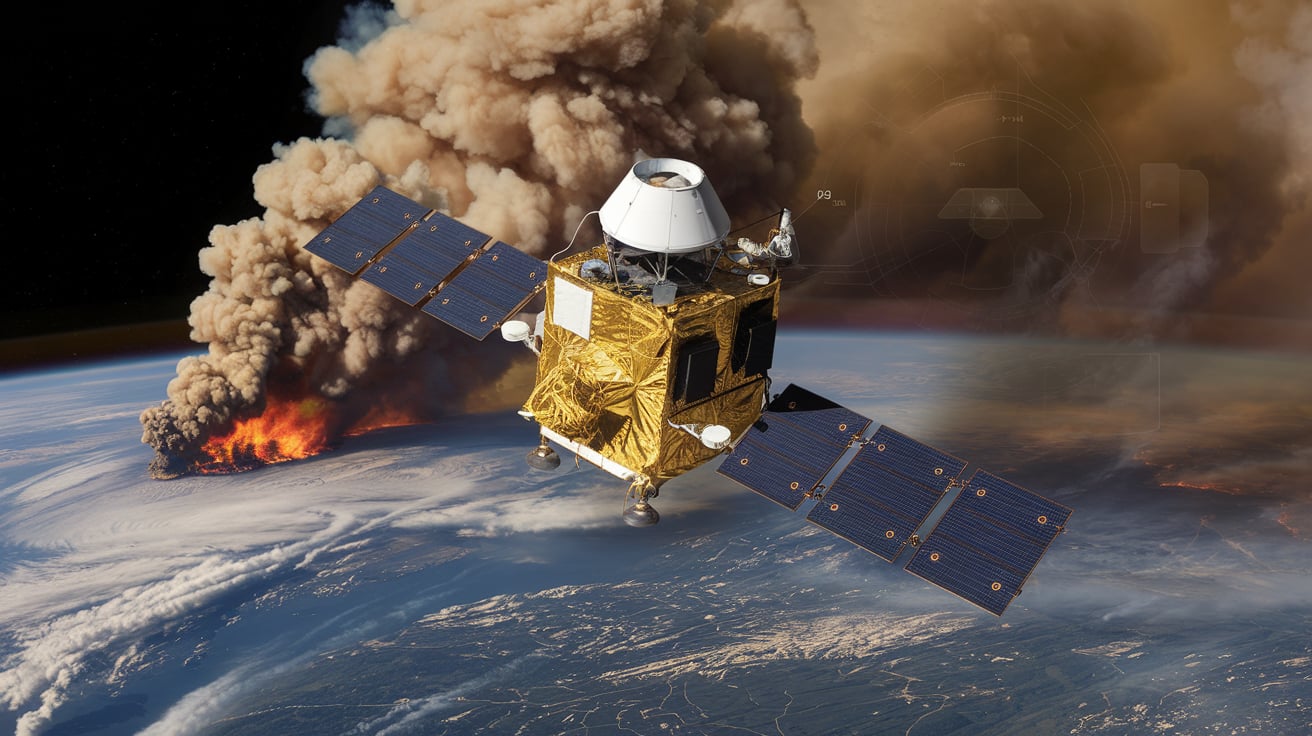
As wildfires become more frequent and intense due to increasingly hot and dry climates, Google Research is taking significant steps to enhance early wildfire detection. In collaboration with fire community leaders, Google has announced the launch of FireSat, a purpose-built satellite constellation designed to detect and track small wildfires within minutes. The system will use AI-powered technology to spot fires as small as a classroom — around 16 by 16 feet — and deliver near real-time information on their location, size, and intensity.
Wildfires are an escalating global problem, with hotter and drier conditions leading to more frequent and severe outbreaks. Firefighters currently rely on satellite imagery that is either low-resolution or updated only a few times per day, making it difficult to detect fires until they have grown much larger. In some cases, fires go unnoticed until they cover an area bigger than a soccer field, limiting the ability to respond quickly.
FireSat is designed to change that. The satellite system will leverage AI and satellite imagery to rapidly compare any 16 by 16-foot spot on Earth with previous images, identifying new fire outbreaks early. This system will also integrate contextual data, such as nearby infrastructure and local weather conditions, to further enhance accuracy.
Google worked closely with Muon Space and the Environmental Defense Fund to develop custom infrared sensors capable of detecting small-scale fires. The development process included validating detection models through flights over controlled burns to establish a robust baseline dataset for the AI.
The first satellite in the FireSat constellation is set to launch early next year, with additional satellites following in the coming years. This initiative is led by the nonprofit Earth Fire Alliance, established to oversee FireSat’s deployment, with support from the Moore Foundation and $13 million in funding from Google.org.
Beyond improving emergency response times, FireSat’s data will contribute to creating a global historical record of fire spread. This dataset will help scientists, including those at the U.S. Forest Service, to better model and understand wildfire behavior, expanding upon Google’s existing work on fire simulation. Additionally, FireSat's technology will complement the FireBench dataset that Google released earlier this year—an open-source machine learning benchmark for wildfire research.
Google has been working on wildfire detection technology for several years, including using AI models since 2020 to create wildfire alerts in over 20 countries. With FireSat, Google continues to collaborate with the fire community to harness AI and data in addressing the growing threat of wildfires.
“As we work to expand our wildfire detection, data and AI play an important role in providing critical information to emergency responders and opening up new opportunities for scientists. We’ll continue to partner with the fire community in the face of the growing threat of wildfires,” Google stated.
By combining AI-driven technology with real-time satellite imagery, FireSat could be a game-changer in preventing the rapid spread of wildfires, ultimately saving lives, property, and natural ecosystems.